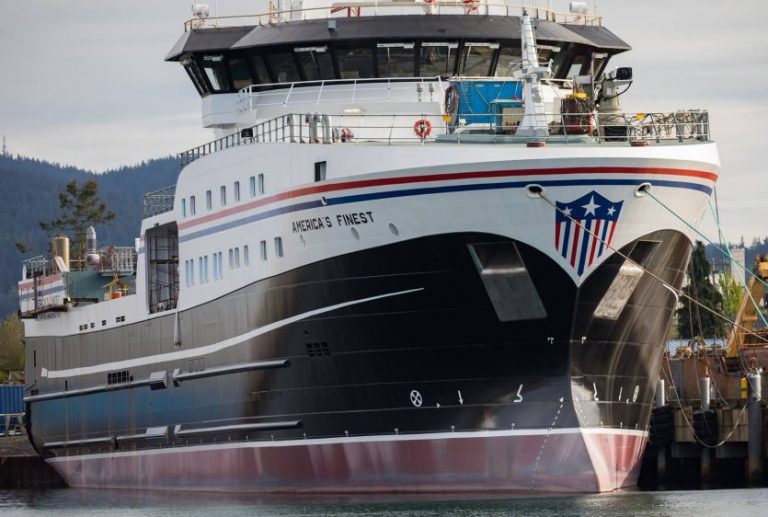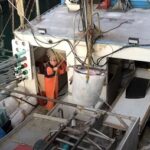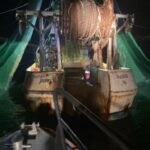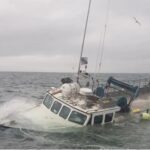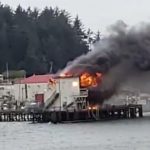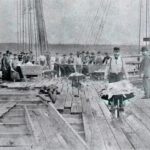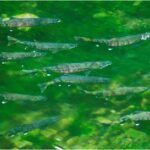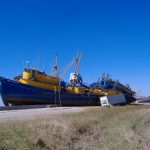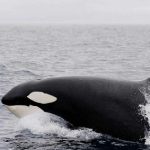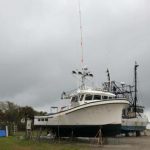Tag Archives: Jackie Odell
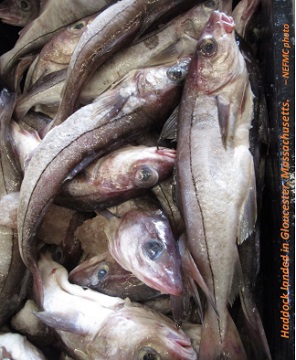
Haddock stock decline prompts catch limits
A low New England haddock stock has prompted regulators to cut the fishing quota of one of the region’s most popular fish. A staple in fish and chips and for fish burgers and home cooks, the amount available from the Gulf of Maine and Georges Bank for 2023 will be more than 80 percent less than the previous year. Prices are relatively high for shoppers, too, with Hannaford, Shaw’s and local fish dealers asking anywhere from $11.99 to $14.99 per pound this month for wild caught Gulf of Maine haddock. Haddock is “subject to overfishing” in the Gulf of Maine while the Georges Bank stock is not, according to NOAA Fisheries. >click to read< 19:02

Fishermen: Haddock limits to lead to shutdown
In two tows during a fishing trip in March, Gloucester fisherman Joe Orlando caught what could have been almost his entire allocation for Gulf of Maine haddock under catch limits proposed for fishing year 2023, which begins May 1. Orlando harvested 7,000 pounds in those two tows, about a half day’s worth of fishing, Jackie Odell, executive director of the Northeast Seafood Coalition pointed out to members of the New England Fishery Management Council, NOAA Fisheries and others in an email. His allocation for the upcoming fishing year is expected to be 8,000 pounds. >click to read< 07:57
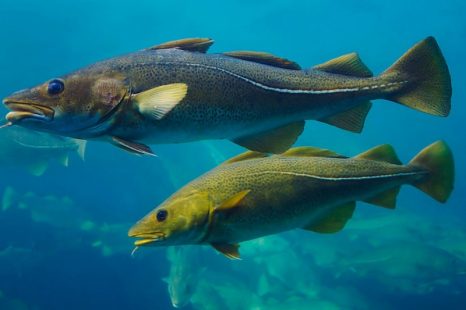
Fishermen not feeling the effects of ‘marked decrease’ in Atlantic cod population
What started as a research presentation on rising ocean temperatures and decreasing cod supply by NOAA quickly turned into a revealing conversation about how scientists and their data often do not reflect fishermen’s experiences. Findings by a working group of researchers indicated that the lifecycle of the species is being influenced by the environment, specifically rising ocean temperatures, which have changed the fish’s spawning behavior and their predator-prey relationships. Fishermen did question is whether these facts are having the same implications that the researchers believe. Al Cottone, a Gloucester fisherman, says he feels cod are in different areas, and that he has noticed a change in the tides, too. >click to read< 10:56
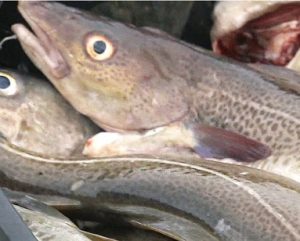
New England: Fishery groups question cod limits
Two fishing industry trade associations are asking the New England Fishery Management Council to reevaluate its drastically reduced catch limit recommendations on Georges Bank cod. The groups, the Gloucester-based Northeast Seafood Coalition and the Associated Fisheries of Maine, say the New England Fishery Management Council’s Scientific and Statistical Committee lacked “relevant information” to make its determination on an Acceptable Biological Catch for Georges Bank cod. They are asking for a remand. >click to read< 09:25

I am not happy. Jackie Odell was not appointed to serve on the NEFMC.
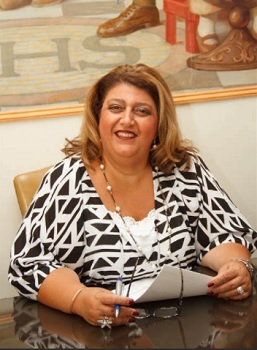
New England Fishery Management Council pick disappoints Gloucester Mayor – feds pulling bait-and-switch
Gloucester Mayor Sefatia Romeo Theken on Tuesday said the June 28 decision to appoint recreational fishing stakeholder Michael J. Pierdinock of Plymouth instead of Northeast Seafood Coalition Executive Director Jackie Odell “was a serious oversight which has not gone unnoticed” by commercial fishing stakeholders. Romeo Theken did not directly criticize Baker for his recommendation to Commerce Secretary Gina Raimondo, who had final say on the council appointment. But New Bedford Mayor Jon Mitchell did.,,, >click to read< 12:19
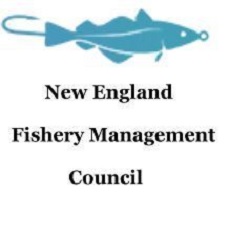
Governor Charlie Baker nominates locals for New England Fishery Management Council
The New England Fishery Management Council will lose four of its longest-serving members this summer because of term limits and two of the vacant seats could be filled by candidates from Cape Ann. Massachusetts Gov. Charlie Baker has nominated Jackie Odell,,, Baker listed recreational fishing stakeholder Mike Pierdinock as his preferred candidate,,, On their way out Quinn, Balzano, Terry Alexander, of Maine, and Matthew McKenzie, of Connecticut, will be leaving the council when their terms expire on Aug. 10. >click to read< 08:23
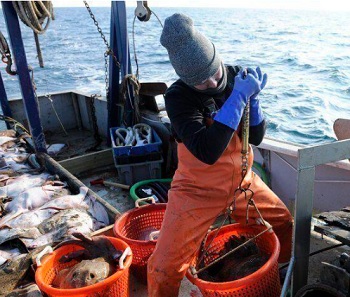
Fishing group asks Baker to fight ‘crippling’ monitor measure
The Northeast Seafood Coalition is trying to enlist Gov. Charlie Baker in its campaign against the monitoring measure that it charges has the “strong potential” to financially cripple the state’s commercial groundfish industry. The Gloucester-based coalition sent Baker a letter last Friday laying out its case that Amendment 23, which will set future monitoring levels for sector-based, Northeast commercial groundfish vessels is highly flawed and should be withdrawn by the New England Fishery Management Council. >click to read< 12:47
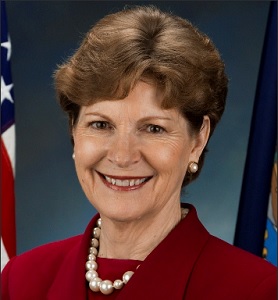
Fishing Money found for at-sea monitors
As part of a $1.4 trillion spending package, the U.S. Senate passed a $79.4 billion appropriations bill that includes another $10.3 million for NOAA Fisheries — once again secured by New Hampshire Sen. Jeanne Shaheen — to fully fund at-sea monitoring in the Northeast groundfish fishery for the 2020 fishing season that begins May 1. When President Donald Trump signed the bill into law the next day, the mandated shouldering of the full financial weight of at-sea monitoring by the groundfish industry — at a cost of up to $700 per day per vessel — had been deferred for at least another fishing season. >click to read< 12:24
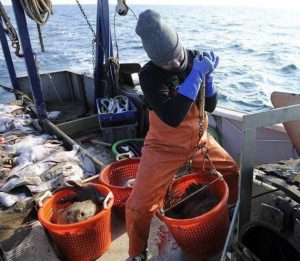
‘There’s no margin’ – Monitors final nail in coffin Feds propose up to 100% fish-counting, unclear on who’s on hook for costs
Groundfishermen, speaking Wednesday afternoon during the public comment period, drew a straight line from the increased monitoring costs to the economic collapse of the fishery. “I made 124 trips last year and each day was 10-14 hours,” said Gloucester fisherman Joe Orlando. “At $700 a day for 100% monitoring, that comes to $84,000 for the year. I didn’t even come close to making that. It would completely bankrupt the sector. And there’s only a handful of us left.” >click to read< 19:45
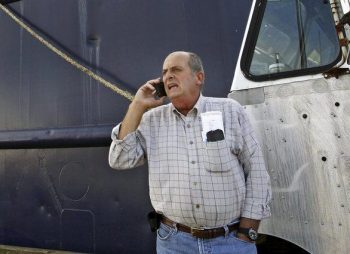
NOAA to vet buyers, Carlos Rafael divesting fleet as part of civil settlement, serving time in criminal case
Charles Green, the acting chief of the enforcement section of NOAA’s office of general counsel, told the New England Fishery Management Council that Rafael has closed on three vessels and their associated permits. The enforcement section of the agency’s general counsel’s office negotiated the final settlement with the fishing mogul, once known as the Codfather, in the civil case brought by NOAA,,, As part of the settlement that resolved all civil charges, Rafael agreed to a full divestiture of all vessels and associated permits, $3.3 million in civil penalties and a lifetime ban,,, >click to read< 21:24
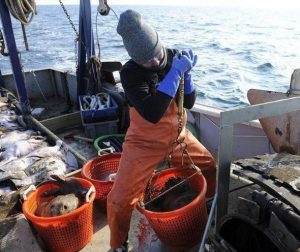
Groundfishermen not hooked by monitoring alternatives
For more than two years, the New England Fishery Management Council has worked on an intricate groundfish monitoring amendment that could have wide-scale economic and regulatory consequences for groundfishermen. It has been a thorny, winding path that involves a host of groundfish committees, plan development teams and assorted staff within the far-flung fisheries regulatory landscape. Now a group of groundfishermen are weighing in. And they are not pleased. >click to read<07:53
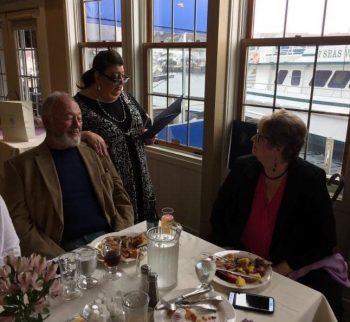
Northeast Seafood Coalition loses longtime staffer to retirement
They threw a little party for Christine Sherman on Friday at the Gloucester House Restaurant, a little brunch with friends, family and colleagues, all of whom had collected to wish Sherman good luck upon her retirement from the Northeast Seafood Coalition. The coalition was formed in 2002 and Sherman, the wife of longtime fisherman Russell Sherman, was one of the first ones through the door, first as a volunteer and later as a staffer extraordinaire. “She served in so many capacities over 17 years,” said Jackie Odell, NSC executive director. >click to read<14:48
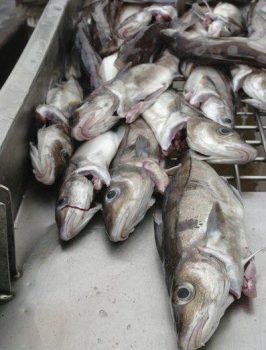
Groundfish quota changes up for debate
The proposed rule, called Framework 58, calls for increasing the commercial quota for Georges Bank cod by 15 percent, Georges Bank haddock by 19 percent and Georges Bank winter flounder by 6 percent for the new fishing season that is set to begin Wednesday. It also includes a 1 percent increase for witch flounder. That’s the good news. The bad news is that the proposed rule, published in the Federal Register, calls for a whopping 50 percent cut to the annual catch limit for Georges Bank yellowtail flounder, a 1 percent reduction in the quota Gulf of Maine winter flounder and a 3 percent cut to the catch limit for Atlantic halibut. >click to read<22:43
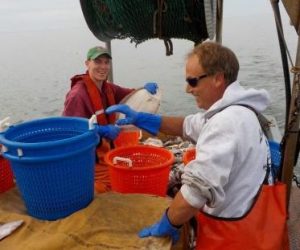
A rare victory for New England commercial fishermen
The New England fishing industry is enjoying a rare victory over federal regulators as the National Oceanic and Atmospheric Administration announced earlier this week that it would pick up the cost of at-sea monitoring of boats this year. What’s more, NOAA will reimburse fishermen for some of their out-of-pocket expenses from 2017. While that’s good news, there is still work to be done. There is no guarantee the new policy — less a promise of change than a one-time concession tucked in the federal budget — will continue past this year. And beyond the cost, the expensive, inefficient at-sea monitoring program, which spreads a limited number of monitors among a large number of vessels for an undetermined number of trips, must be able to provide accurate information regulators and fishermen can trust. >click to read<07:34
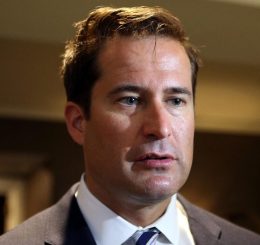
Moulton votes no on H.R. 200
U.S. Rep. Seth Moulton voted against the House bill to reauthorize the Magnuson-Stevens Act on Wednesday because the bill undermines efforts to improve the science used to generate stock assessments and pits fishing stakeholders against each other, the congressman said in a statement Friday.,,, “Over the past three years and through numerous conversations with fishermen, scientists and environmental groups, one thing has been made abundantly clear: We need to improve the science behind our federal stock assessments,” Moulton stated. “The reauthorization of Magnuson-Stevens undermines our efforts. We need everyone on the same page. We all want sustainable fisheries for today and future generations and we shouldn’t have to pit one group of fishermen against another to achieve that.”>click to read<09:04
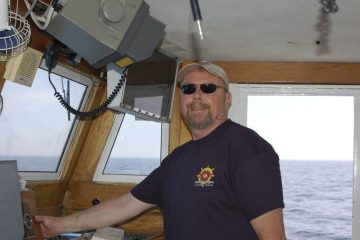
NOAA/NMFS to foot at-sea monitoring costs – Thank You Senator Shaheen!
Timing may not be everything but it sure counts for a lot. Just ask New Hampshire groundfisherman David Goethel. Goethel, who had persevered through cascading years of escalating regulation, slashed fishing quotas, a failed lawsuit and, more recently, the prospect of paying the full cost of at-sea monitoring, was ready to get out of commercial groundfishing. “I had planned to sell my boat this summer,” Goethel said Wednesday, referring to his 44-foot, Hampton, New Hampshire-ported Ellen Diane. “I was done.” Last week, following a full year of working behind the scenes with U.S. Sen. Jeanne Shaheen of New Hampshire, Goethel got the news he and other groundfishermen wanted to hear: >click to read<08:24
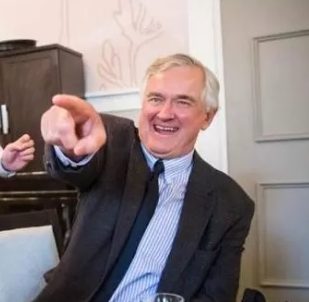
While setting New England fishery rules, John Bullard was an exception
He’s been called a Neanderthal and the most reviled man in the region’s fishing community. At a public meeting broadcast on national TV, a fisherman once accused him to his face of lying for a living. As the regional fisheries administrator of the National Oceanic and Atmospheric Administration, John Bullard has drawn ire from all sides — fishermen, environmentalists, and politicians alike. His decisions have been routinely controversial, and he has rarely minced words in defending them. click here to read the story 20:53
Controversy over New England region’s cod population – Now fishermen spend more time avoiding cod than catching it
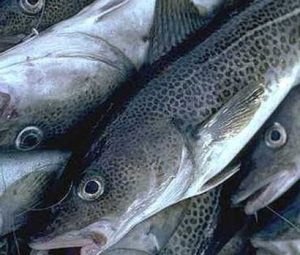 Three letters to the editor, one from from Jackie Odell, Executive director Northeast Seafood Coalition, Re “dwindling” cod population no fluke in Mass.” (Editorial, April 5): Small family-owned fishing businesses operating in New England rely upon sound science. In recent years, reports for stocks like Gulf of Maine cod have gone from being overly optimistic to overly pessimistic, seemingly overnight. This flip-flop has justifiably created doubt and suspicion among those who participate in the fishery.,, a joint letter from Reps Keating, Lynch, and Moulton, We represent the Commonwealth’s coastal communities and their hard-working fishermen and -women as well as the scientists working to better understand how the fishery is evolving. We share a common goal: understanding the science that can get us to a sustainable fishery.,, and Peter Dorfman. The cod, which used to be abundant and a staple of our economy, are now scarce and possibly on the verge of extinction. It is a genuine shame that the people responsible for this situation cannot bring themselves to accept what has long been scientifically established fact. Click here to read them, and check out the comments. 19:23
Three letters to the editor, one from from Jackie Odell, Executive director Northeast Seafood Coalition, Re “dwindling” cod population no fluke in Mass.” (Editorial, April 5): Small family-owned fishing businesses operating in New England rely upon sound science. In recent years, reports for stocks like Gulf of Maine cod have gone from being overly optimistic to overly pessimistic, seemingly overnight. This flip-flop has justifiably created doubt and suspicion among those who participate in the fishery.,, a joint letter from Reps Keating, Lynch, and Moulton, We represent the Commonwealth’s coastal communities and their hard-working fishermen and -women as well as the scientists working to better understand how the fishery is evolving. We share a common goal: understanding the science that can get us to a sustainable fishery.,, and Peter Dorfman. The cod, which used to be abundant and a staple of our economy, are now scarce and possibly on the verge of extinction. It is a genuine shame that the people responsible for this situation cannot bring themselves to accept what has long been scientifically established fact. Click here to read them, and check out the comments. 19:23
Emergency action needed on at-sea monitoring – Jackie Odell, Northeast Seafood Coalition
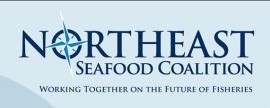 NOAA Fisheries announced last week that funding for the at-sea monitoring program for groundfish fishermen operating under sectors will now extend through Oct. 31. This announcement was made less than a week after NOAA Fisheries denied the New England Fishery Management Council’s request to initiate an emergency action to suspend the program temporarily until a full evaluation, including a cost-benefit analysis, of the program is conducted. Read the rest here 15:51
NOAA Fisheries announced last week that funding for the at-sea monitoring program for groundfish fishermen operating under sectors will now extend through Oct. 31. This announcement was made less than a week after NOAA Fisheries denied the New England Fishery Management Council’s request to initiate an emergency action to suspend the program temporarily until a full evaluation, including a cost-benefit analysis, of the program is conducted. Read the rest here 15:51
Climate Change Threat To New England Fisheries
 WGBH News’ Stephanie Leydon reports, in part two of our FOCUS report on climate change, there is evidence that warming waters are impacting one of the region’s most vital natural resources: seafood. GUESTS- John Bullard – National Marine Fisheries Service. Jackie Odell – Northeast Seafood Coalition. Watch the video here 07:25
WGBH News’ Stephanie Leydon reports, in part two of our FOCUS report on climate change, there is evidence that warming waters are impacting one of the region’s most vital natural resources: seafood. GUESTS- John Bullard – National Marine Fisheries Service. Jackie Odell – Northeast Seafood Coalition. Watch the video here 07:25
US aid not enough, Gloucester fishermen say
 Despite last week’s announcement of a $14.5 million federal disaster grant to the Massachusetts fishing industry, area fishermen and marine analysts believe that the funds will only serve as a stopgap for an industry that has nearly collapsed because of declining groundfish stocks. Read more here 07:36 F/V Lady Jane info here
Despite last week’s announcement of a $14.5 million federal disaster grant to the Massachusetts fishing industry, area fishermen and marine analysts believe that the funds will only serve as a stopgap for an industry that has nearly collapsed because of declining groundfish stocks. Read more here 07:36 F/V Lady Jane info here
Jackie Odell, Northeast Seafood Coalition @ “Managing our Nation’s Fisheries” conference – timelines should be replaced with fishing mortality rate-based strategies,
Odell Wednesday offered an alternative to 10-year, or any rebuilding timelines. They “should be replaced with fishing mortality rate-based strategies, which on average over the long term will rebuild a stock to biomass (that will produce)![]() maximum sustainable yield. Such a strategy would achieve the core objective of fisheries management, to sustain commercial and recreational ‘fisheries’ while preventing overfishing. continued
maximum sustainable yield. Such a strategy would achieve the core objective of fisheries management, to sustain commercial and recreational ‘fisheries’ while preventing overfishing. continued


































